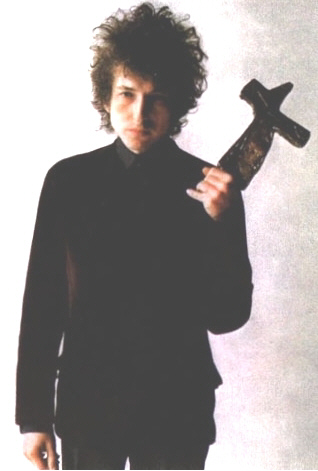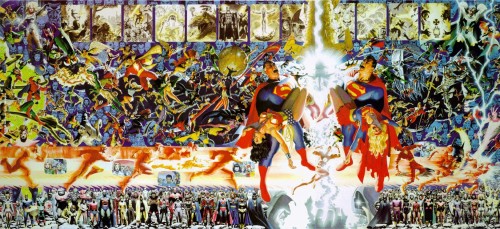
(via Jason “the B. is for Bookslut” Jones.)
Hey, look. the Chronicle of Higher Education is saying the thing I’ve been saying for years now. From “The New Math of Poetry.”
The notion that writing and performing “poetry” is the easiest way to satisfy the American itch for 15 minutes of fame has spilled out of our campuses and into the wider culture. You can’t pick up a violin or oboe for the first time on Monday morning and expect to play at Lincoln Center that weekend, but you can write your first poem in May and appear at an open mike in June waving a “chapbook” for sale. The new math of poetry is driven not by reader demand for great or even good poetry but by the demand of myriads of aspiring poets to experience the thrill of “publication.”
Here’s another: “Were a conscientious anthologist of this year’s poetry to spend just 10 minutes evaluating each published poem, he or she would need to work 16,666 hours, which means it would take eight years to assess the eligible poetry for a 2010 anthology.” That’s a fascinating/terrifying thought. But then, in the great tradition of Chronicle articles, there’s a long dead patch in the middle where Alpaugh gets incensed-by-numbers about how much nepotism is/n’t involved in BAP, Poetry Daily, and a few other premiere journals. Is there anyone left in the poetry world for whom these “allegations”/”revelations” (take your pick, depending on whether your own jury is still out on “the case”) are anything like a surprise, or remotely of interest?
If you stick around, the article eventually emerges–sort of–from this funk. “Marginalizing independent poets and the diversity of life experience they bring to poetry may help bolster M.F.A.-teaching careers; but how healthy is it for the art? Almost all of the world’s great poetry has been written by independents, and most of the poets writing today (myself included) remain unaffiliated with any institution.” By any metric, this is a salient point, and I think if it had appeared in the thesis instead of the conclusion, the article would have sounded a lot less like sour grapes. Then there’s a few lines about how if “Howl”/”The Road not Taken”/”Daddy” were published today, they’d all be relegated to niche journals and wouldn’t make BAP, to which I can only re-iterate my earlier sentiment: YAWN. Because the premise of the question is bullshit- if “Howl” was published today it would absolutely not appear in BAP or any journal of note. But the reason isn’t that we’re no longer smart enough to read. The reason is that the poem would be coming fifty years too late. You can’t blame the culture for having moved forward from its own major milestones. That’s kind of the whole point, yeah? Anyway, there is one nice Pound quote about the value of editors (I believe he’s speaking here specifically about anthologists; Pound of course edited several)–“The weeder is supremely needed, if the Garden of the Muses is to persist as a garden.” We’ll leave things there. And as usual, because it’s the Chronicle, the comments section is bustling. So if anyone feels like scrapping, you’re welcome to join their fray (I see our own Mark Leidner is over there, spreading some genial insurgency) or have your own here. Like I need to tell you that.



PS- all artwork in this post is by David Foox. I don’t know how I got on his mailing list, but I’m glad I wound up there. These little guys right here are from the “elemental badgers” series. You are looking at the SOUL, FIRE, and AIR badgers. Up top is a painting entitled “I Am Not a Toy.” More at Foox-u.






 The Rumpus has a
The Rumpus has a 

 At The Rumpus,
At The Rumpus, 